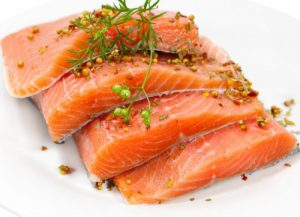
Finally, the 2nd part of this series is here! It has been quite a while since Part 1 of this article and this continuation is long overdue. Sorry for the wait!
Since it’s been some time, let’s do a brief review of what we’ve went over in Part 1:
- The current stigma and opinions surrounding low-carb diets
- The history of low carb diets
- The 3 most popular low carb diets today
- The Atkins Diet
- The Anabolic Diet/Carb Backloading/Carb Nite
- The Ketogenic Diet
The big questions we’ve been trying to answer are if low carb diets actually
- help lose weight
- promote healthy living
- can be sustainable
The answers to these questions will decide if low carb diets really are worth all the hype. It’ll also give us insight on where the criticism stem from and what they may actually mean.
On top of that, we can decide if it’d be a good idea for us to try these low carb diets. Depending on our goals and how our bodies respond to them, we may find that low carb diets are everything we’ve been looking for to live a healthy lifestyle.
To determine the answers to these questions, a lot of people often point to personal experiences and anecdotal evidence. But we know that these aren’t good enough to reach a conclusion, especially on something debated about as much as low carb diets.
And what better way to prove a point than using data and results from scientific experiments and medical studies that looked at the effects of low carb?
Results
To answer the questions from the previous section, we’ll need science and factual proof. And those are exactly what I’ve been planning to show you guys (not using an excuse here but it’s part of the reason why this part took a bit to publish!).
Without further ado, here are just some of the findings from the scientific community regarding low carb diets!
The Science
According to a study conducted by the Chronic Disease Outcomes Research group, a high-fat Mediterranean Diet contains foods that may lower the risk of onset of certain ailments. This is due to the anti-inflammatory effects of the high-fat foods.

This study included analyzing 332 previous studies performed on the Mediterranean Diet and 56 different research paper written on the subject.
Evidently, regularly eating high-fat foods like eggs, olive oil, nut, and fatty fish reduces the risk of heart disease, type 2 diabetes, and breast cancer.
According to Hanna Bloomfield, the spokesperson for this study from the Chronic Disease Outcomes Research group, one of the reasons why those on a high-fat diet show less of the mentioned ailments and diseases compared to those on a low-fat diet is the restriction of healthy fats from the latter group.
This in turns makes sugar and refined carbs a much easier option, which has long been known to lead to poor health and all the diseases mentioned and more.
But Pasta Is Good For Us!
Interestingly, a study conducted by scientists from the Department of Epidemiology of the Italian government agency I.R.C.C.S. showed that regularly eating pasta, one of the most common source of carbs in the world, results in lower body mass index (BMI) and better waist-to-hip ratios.
23,000 people were recruited for this study from Italy. Questionnaires were answered about eating habits and what they usually ate in a 24-hour period.
The scientists found that the people who ate pasta more regularly that those that did not had the lower BMI’s and waist-to-hip ratios.
So what’s the deal?
There are 3 obvious factors that should be considered before drawing the conclusion that this study proves carbs, or at least pasta consumption on a regular basis makes for healthy eating habits.
1. BMI is a poor indicator of obesity or health
It’s been known that BMI measurements alone does not mean anything in terms of obesity and health. The results gathered by this weight-to-height ratio system of measuring would tell us that most bodybuilders are obese at body fat percentages well below 10%, and someone with 35%+ body fat might be within normal health range.
Adding the waist-to-hip (WTH) ratio definitely helps improve the accuracy of the results. When both are used, a lot of inconsistent data are usually generated.
Those with a healthy BMI may have a terrible WTH ratio and vice versa. And WTH ratio has been known to be a much more accurate indicator of obesity and increased risk of certain ailments like heart disease.
So those with lower BMIs from this study may not actually be in good health as the conclusion would lead us to believe. Also, this study did not differentiate any discrepancies between BMI and WTH.
2. Pasta are made from grains
If you haven’t checked out the grains article yet, I highly recommend you do. I won’t go into detail of the same material here, but here are a couple basic points.
Regardless if the grains are whole or refined or enriched (even worse), humans cannot digest grains as efficiently as they do other foods like vegetables, meats, fruits, etc.
Grains weren’t consumed by humans on the grand scale as it is today until relatively very recently, around the time of industrial revolution where the agricultural industry really picked up on it. Coincidentally (or maybe not), that’s around the time when health issues started to rise in developed countries with farmland full of grain crops.
These are just a couple reasons why pasta made from grains are not safe for us to consume. To get more details and info on this topic, check out this article.
3. This study was funded in part by…
an Italian pasta company. On top of that, the conclusion from the study showed that the regular consumption of pasta and the healthy waist-to-hip ratios were only an association, not a causation.

Needless to say, industry funded research can be just a bit skewed at times to fit a certain agenda. I mean, just check out this article on how the sugar industry and its associated companies re-write science.
Energy Expenditure And Body Composition
A study published in the American Society of Nutrition in July 2016 showed that consuming a ketogenic diet resulted in higher energy expenditure.
Seventeen obese/overweight men took part in this study. They were fed a high carbohydrate diet plan for 4 weeks, then followed by 4 weeks of a ketogenic diet plan. Energy expenditure, sleeping energy expenditure, and respiratory quotient were all measured.
For those of us that aren’t as familiar in health sciences, energy expenditure is simply the amount of energy our body is using just to stay alive. Respiratory quotient is the amount of carbon dioxide we release relative to the amount of oxygen we consume. This is noteworthy because the amount of carbon dioxide we release has a direct correlation with the amount of carbohydrates we consume.
The findings were as predicted. Although both the high carb and ketogenic diet were implemented with a negative 300 maintenance Calorie, the keotgenic diet produced greater energy expenditures and a lower respiratory quotient.
Body fat loss continued throughout the entire study as the 300 Calorie deficit was maintained. However, the fat loss rate decreased during the ketogenic diet phase of the study with an increase loss in fat-free mass.
Hmmmm…..
It’s difficult to draw the conclusion that the ketogenic diet isn’t as effective for fat loss as a high carb diet. We don’t know the types of carbs and types of fats used during these diets. We also don’t know the amount of protein used during both of the diets.
A possible explanation for the increase loss of fat-free mass could be that carbohydrates have a higher muscle sparing effect than fats given the calorie deficit is equal. But there’s another explanation.
And as far as the decrease in loss of body fat, we’ll address that in a later section along with the explanation for the increased loss of fat-free mass.
Brain Fuel
In addition to the decreased risk of ailments and diseases, a ketogenic diet has proven to provide fuel for our brains in the form of ketones. When carbs are lowered or eliminated, glucose eventually gets depleted by our brains and muscles.
Our bodies then turn to fatty acids for fuel. Although these can be used to fuel our muscles and such, our brains cannot use fatty acids for fuel since they can’t cross the blood-brain barrier.
So to keep our brains going, ketone bodies are produced from the breakdown of fatty acids. These ketone bodies are what fuels our brains in a glucose-depleted environment. Hence the name of the diet.
Here’s the good part. Ketones have neuroprotective, antioxidative, and anti-inflammatory effects. These effects prevents cellular aging, injury and even death for our neurons and our bodies. Risks of diseases associated with cognitive decline such as Alzheimer’s, stroke, dementia, etc. are all decreased as a result.
Oh, it has anti-cancer effects too.
Cancer cells divide rapidly in the presence of their favorite fuel, glucose. By depriving the body of glucose, studies have shown cancer tumors growth rate slow down significantly.
Long-Term Effects
What are the long term effects of a ketogenic diet? A study published in the Clincial Cardiology back in the Fall of 2004 showed that a ketogenic diet maintained up to 24 weeks showed improvements in various biomarkers.
These improvements included lower triglycerides, blood glucose, and LDL cholesterol in over 80 patients. HDL cholesterol increased as a result and total body mass decreased when applied to obese patients.
For the entire 24-week duration, carbohydrates were kept to 30 grams per day, 1 gram per kilogram of body weight, and the remaining of the maintenance Calories came from fats. The fats were categorized into 20% saturated fats and 80% polyunsaturated and monounsaturated fats.

The carbohydrates sources were kept to green vegetables and salads while proteins came from shellfish, fowl, and other meat sources.
This shows that ketogenic diets are actually beneficial when used over the long-term. The health effects are obviously there and all the improved biomarkers are associated with increased longevity.
Back to the earlier that showed the slowing of fat loss during the ketogenic diet phase vs the carbohydrate phase…
I think it’s a good time to bring that up because it’s related to the time spent in the ketogenic state. The previous study only had the subjects in the ketogenic diet for 4 weeks, while this one had them using the diet for 24 weeks.
In addition, the previous study had a period of carbohydrate loading prior to the implementation of the keto diet. If you recall from Part 1 of this series, carbohydrates eventually turns into glycogen in our bodies. Glycogen binds to water, which makes our bodies puffier and bigger.
That’s where the term “water weight” comes from. The initial weight loss from low carb diets are in the form of water. We’re always using a mixture of glycogen and fat as fuel. But when glycogen is plentiful, our bodies prefer the use of glycogen over fat stores.
And since glycogen binds to water, we lose that water when we use up the glycogen. Hence, the initial weight loss is mostly water weight.
Going back to the previous study, the first 4 weeks of carbohydrates filled the subjects full of glycogen.
Keeping a calorie deficit will result in both fat and lean mass loss in that phase.
Now we go into the carbohydrate deficit environment of a ketogenic diet. Guess what happens? That’s right, the water weight goes first.
And anyone that’s ever been through a diet or fast or any other weight loss plan can attest to the initial weight loss being so fast. Then it slows.
This explains the increase in fat-free mass (water is fat-free). I avoid saying that anything fat-free is lean mass because that causes the confusion that loss of water weight is harmful.
When it comes to the slowing down of body fat loss, it most likely was due to the adaptation phase into the ketogenic diet. The metabolism of those used to burning carbs are inefficient at using fatty acids as fuel. They’re even more inefficient at breaking down those fatty acids into ketones to feed the brain in the absence of glucose since it involves a secondary process.
This explains the brain fog and flu like symptoms of those that jump into the low carb diets cold turkey. Although it’s a phase that passes with time, it’s during this time that most quit and claim that low-carb diets are not sustainable.
4 weeks may not have been enough time for those subjects to adapt to the low carb diet. The more insulin resistant someone is, the longer it takes for them to adapt to a low carb diet. And the participants in this study were obese and overweight individuals. It would’ve taken weeks, if not months for most of these individuals to adapt to the diet and start burning fat efficiently.
Even if they did adapt to the low carb diet within those 4 weeks, the fat burning process gets more and more efficient as time passes. So the original fat burning rate would not have shown the true potential of a low carb diet.
With all this in mind, it’s easy to see why short term studies seem to suggest that low carb diets don’t work that well. But when studying the long term effects, low carb seems to do wonders when implemented correctly.
So Much More To Come
We’re getting to the good parts of this subject! Low carb diets really does all this and more for not just our health, but cognitive protection, fat loss, and overall well-being.
There are lots of others things to cover, especially on the other side of the topic. There’s no shortage of controversy surrounding low carb, even with all the science behind it.
Also, there are lots of anecdotal evidence for both sides of this debate.
Most important of all, we still have to determine how each of us should approach low carb diets, or if we should consider them at all, even with the proven science.
So check back for the final part of this series, Part 3. I’ll try to have it out for you guys soon, hopefully not as long as it took me to get this one out!
Stay healthy,
-Wing
References:
- http://indianexpress.com/article/lifestyle/health/high-fat-mediterranean-diet-may-lower-diabetes-cancer-risk-2933417/
- http://www.shape.com/weight-loss/food-weight-loss/pasta-healthy-bmi-study
- http://ajcn.nutrition.org/content/early/2016/07/05/ajcn.116.133561.abstract
- http://brainblogger.com/2016/07/24/nurturing-the-brain-part-10-ketogenic-diets/
- http://www.ncbi.nlm.nih.gov/pmc/articles/PMC2716748/


Ive never paid much attention to low carb and low calorie until recently. Ive been doin certain researches and Ive found that low carb diets are pretty successful. But I guess it depends on the person. Its amazing that pasta is good for you, because so many people try to steer clear of it when dieting. Great article!
Skylet,
Pasta actually isn’t good for us! As pointed out, the results from the study wasn’t directly indicative that pasta is good for our health, and the study was partially funded by a pasta company on top of that!
-Wing
Great article. I have always been bad at diets, and would probably be worse at a low carb one, because lets face it, who can live without pasta.
Although you say the health benefits are good, I do have a friend who went on the banting diet and here cholesterol levels went through the roof. She had to stop. I wonder why this happened?
Michel,
Saturated fats can definitely elevate cholesterol, more so in some than others. That being said, higher cholesterol, even out of the medical range (>200), isn’t necessarily a bad thing. It’s the other constituents in the blood that gets elevated that can cause problems. There will be an article coming out shortly about that specifically.
-Wing
Great discussion here,
I still believe that at the end of the day, it will come to a free choice: Should I let the pleasure of the tongue destroy my life, Pasta is good as we get the habit since kid, but there are alternative. Asian have come with rice noodle, there is plain wheat pasta and Our well being must drive our choice after certain age, because we are now the mom and dad, the bread winner of a family……
Ray
Mind blown… It’s just too bad I love pasta so much! I will admit I have lost about 25 pounds while deployed in Afghanistan recently but my progress has come to a screeching stop. I was 216 and now I am 190 exactly. I fluctuate from 187 to 192. My diet hasn’t changed and my workouts are routine. I am extremely afraid of going back home and breaking the good habits that I’ve conjured up here. But perhaps watching my carbs over just calories will help.
Michael,
There’s no problem loving pasta! If you really like carbs, you’ll want to stick around for part 3. Just to give you a preview, going low carb ALL of the time may not be the healthiest thing, especially for some of us that are genetically predisposed to needing more carbs than others.
-Wing
cool! Cant wait
In my opinion as a student-homeopath that deals with clients that have weight issues, the type of food or diet that we have may not be the most important thing we need to have on our minds (I’m not saying to pig out). Rather, it all comes down to PORTION CONTROL. When we control the amount that we eat, whether on or not on a diet, it won’t have such a negative effect on our body. That plus regular exercise (even if just walking) can definitely lead to good results, as it has for myself.
Ariel,
Portion control definitely has a big part in it. The trick though is that certain foods tend to cause certain hormonal responses that makes portion control easier or harder due to affected energy levels, hunger levels, mood changes, etc.
While regular exercise helps positively affect those hormones, the types of foods we eat play a huge role as well.
Thank you for sharing your thoughts!
-Wing
I just can not cut carbs out of my diet. I have tried but failed as my energy levels drop and my mood turns dark.
Interesting to read that pasta is considered a good carb to eat. I really though I had to restrict my pasta intact but the good news here is I don’t!
Fairweather,
It’s definitely tough to go low carb if you’re doing it cold turkey, especially if you’ve been consuming carbs regularly for a long time.
Pasta isn’t necessarily a good food to consume on a regular basis. But carbs does have its place in our diets as I’ll explain in Part 3.
-Wing
This is a nice site and a good layout. I would use subtitles I would have done in bold. It would break the page up slightly.
You have provided lots of useful information. Low I do not personally follow a Low Carb Diet, some of what you have provided; I would also benefit from.
It is nice to see a recap of the information that you have, provided in part 1. Providing the benefits of some foods makes very interesting conversion.
Are you going to add anything of interest for those that, have to follow a specialist diet?
Peter,
Low carb isn’t necessarily for everyone. There’s more things to consider than just the macros, but for a lot of us, cutting out carbs even in the short term, tends to improve various biomarkers and health issues like inflammation and digestion problems.
As far as following a specialized diet, it really depends on the individual’s needs. As you said, the diet would be special to that individual. Without knowing more about him or her, all I can suggest is for them to find out what works best for their specific needs.
-Wing